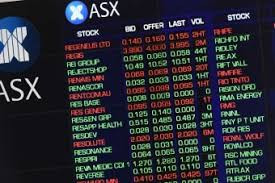Weekly market update
Written and accurate as at: Jul 23, 2018 Current Stats & Facts

The local market gained 0.28% last week, remaining firm despite persistent concerns over US trade sanctions and a salvo from President Trump towards the US Federal Reserve over the pace of rate hikes and resulting strength in the US dollar since mid-April.
One consequence of USD gains has been a shift away from emerging market equities – particularly from high-beta Asian markets given the risk of an escalating trade war between the US and China. This has led to a rotation towards more defensive parts of the region, which has helped sectors in Australia, such as the banks, outperform over the month to date. Commonwealth Bank (CBA), for example, is up over 3% since the start of July, while the market is up roughly 0.5%. Trump’s shot across the Fed’s bows saw the USD weaken slightly against most major currencies late in the week and, while it is too early to see if this becomes a more meaningful shift in trend, it is one area to keep a keen eye upon.
Trade war rhetoric also inflamed some pre-existing doubts over the pace of Chinese growth, weighing on the price of key commodities. The Resource sector fell -1.84% in response, continuing its underperformance over the month to date. The market is currently grappling with whether China’s growth is stabilising or continuing to decelerate; While the economy does face headwinds from trade sanctions, much of the actual effect has been offset by the yuan’s depreciation. At the same time, China has been on a path of modest stimulus for two months now to offset some of the previous clamp down on shadow banking, with reserve ratio requirements being relaxed at the state-owned lenders. There is also talk of some tax cuts. BHP (BHP, -1.26%) delivered a reasonable quarterly update last week whilst the gold miners endured a tough week, with Evolution Mining (EVN) down -9.67% and Newcrest Mining (NCM) off -6.25% as the gold price continued to fall. Oil too was off, with West Texas Crude down -0.77%. Oil Search (OSH, -3.99%), Woodside Petroleum (WPL, -3.31%), and Origin Energy (ORG, -2.78%) were among the market’s worst performers as a result.
Outside of resources, building products company CSR (CSR, -9.6%) suffered following a disappointing update and speculation that it may divest is glass products units, while A2 Milk (A2M, -5.64%) was weaker on emerging signs of pricing pressure on its infant formula products in China.
Construction company CIMIC (CIM, +13.11%) was the market’s best performer following a 12% gain in profits in its half year result, as the beneficial surge in transport infrastructure spending starts to emerge in company revenues. Fairfax Media (FXY, +4.55%) also outperformed, responding to some signs that the decline in newspaper advertising is starting to show some signs of stabilisation offshore, although not yet in Australia.
Qantas (QAN, +2.71%) was up on a weaker oil price and continued strength in domestic travel demand, while there was a bounce from some recent underperformers including Boral (BLD, +4.79%), Ramsay Health Care (RHC, +4.25%) and Metcash (MTS, +5.65%). MTS remains at 11x NTM P/E vs 21x for Woolworths (WOW, +0.06%) – a discount that we believe is unjustified and unlikely to persist. MTS have announced a buyback of at least 5% of its shares in August – with the potential for a higher figure – and we may see the recent bounce persist into that purchase.
Finally, the possibility of Chinese tax cuts saw Treasury Wine Estates (TWE, +5.50%) outperform. As a cohort, growth stocks such as TWE remain at an extreme valuation premium; the P/E of the ASX200 quintile with the highest earnings growth is 42% higher than its 15 year average. Growth stocks last saw a relative correction in 2016 as bond yields bounced back from their nadir, but at that time Chinese stimulus was driving a surge in consensus earnings for resource stocks, allowing an alternative for growth-focused investors. Today, the alternative is not so obvious given resource stock earnings growth has descended to a more moderate path. This poses one of the key challenges in today’s market; while valuations are extreme, it does not necessarily mean that they will reverse any time soon.










